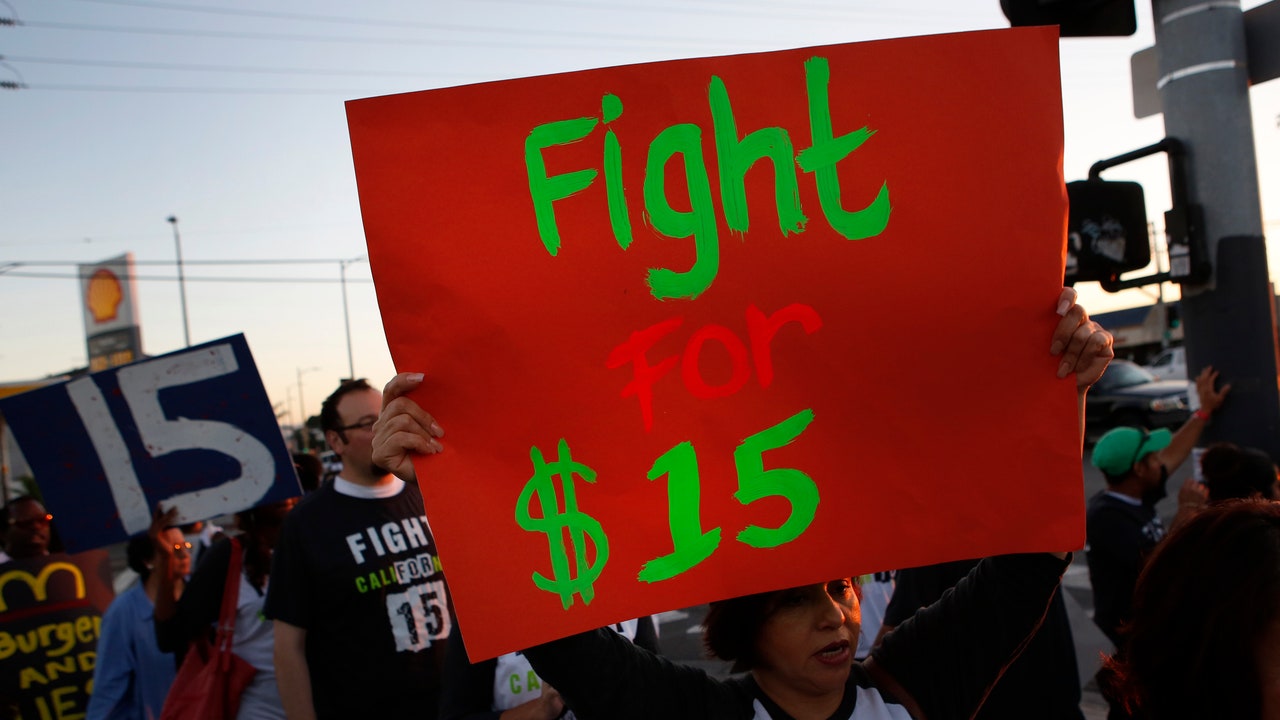The Senate voted to pass President Joe Biden’s proposed $1.9 trillion relief package on Friday morning, with Vice President Kamala Harris returning to the Senate to cast the tie-breaking vote. The budget will allow for a new round of stimulus checks, extend unemployment benefits until September, send funding to help reopen schools, and a host of other wins. Disappointingly, though, Republicans were ultimately able to block a proposal to bring the federal minimum wage up to $15/hour.
The hourly U.S. federal minimum wage has been $7.25 since 2009, while inflation has risen at a rate of almost 24% in that time. The $15/hour proposal, also known as the Raise the Wage Act, earned Biden’s endorsement—with the caveat that it would be staggered over the next four years.
Perhaps the defeat of the minimum-wage proposal obscures a larger issue: we need to start prioritizing the very real financial needs of minimum-wage workers. If we’re unable to do this during a pandemic, in which the necessity of their often essential work has been undeniably illustrated, then when will we? While extending unemployment benefits to the millions of Americans who lost their jobs due to COVID-19 should absolutely take legislative precedence, shoring up unemployment shouldn’t be at odds with increasing compensation for hourly workers.
Pandemic relief is undeniably necessary at this historic moment. But a more humane minimum wage should not be deemed categorically distinct from this relief. Approximately 1.7 million Americans are working full-time and still barely earning enough to survive. What message are we sending to minimum-wage hourly workers—who are more likely to be female and/or Black—when we continue to tell them that their right to a livable salary isn’t a priority?
A minimum wage increase isn’t the only issue at state for hourly workers, of course; groups like the Fight for $15 have long focused on winning service workers the benefit of union representation as well as more money. Still, it’s undeniable that a minimum-wage hike would put more money directly in the hands of the workers who need it most. It’s well-known by now that women of color were hit hardest by pandemic unemployment, but what about the ones who are still working—as back-of-house restaurant workers, personal care aides, garment workers and a host of other poorly remunerated, traditionally female jobs?
“A $15 federal minimum wage would be devastating for our hardest-hit small businesses at a time when they can least afford it,” said Senator Joni Ernst, a Republican from Iowa on Friday, playing into a familiar battle between the interests of small business owners and the workers they employ. A near 50 percent increase in the federal minimum wage does have to come from somewhere, but many states and cities—including California, America’s most populous state—have minimum wages far higher than $7.25. Why can’t that simple acknowledgement of workers’ dire economic need be consistent around the country?
